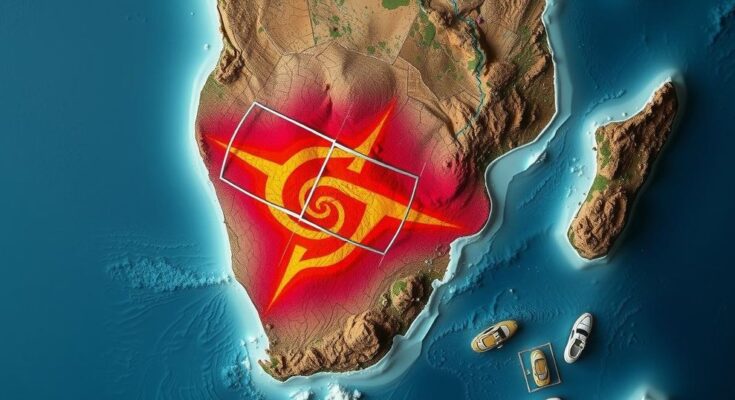A magnitude 5.48 earthquake struck South Africa, according to the GFZ. While significant, details about the quake’s epicenter and impact are limited. The event serves as a reminder of the geological hazards that can affect the region, emphasizing the need for public awareness and preparedness against earthquakes.
A 5.48 magnitude earthquake recently struck South Africa, as reported by the GFZ (German Research Centre for Geosciences). The quake’s epicenter and impact details have not been extensively outlined in the provided information. Earthquakes of this magnitude can cause varying degrees of damage depending on their depth and the proximity to populated areas. While South Africa is not commonly associated with high seismic activity, this event serves as a reminder of the potential for geological hazards affecting the region.
Earthquakes are natural phenomena resulting from the movement of tectonic plates. South Africa, located on the African tectonic plate, experiences relatively infrequent seismic events compared to other regions globally. The detection of an earthquake measures its magnitude on the Richter scale, which assesses the energy released at the quake’s epicenter. The GFZ, a leading institution in geosciences, monitors such seismic activities and provides essential data for public awareness and safety.
In conclusion, the 5.48 magnitude earthquake that struck South Africa underscores the importance of earthquake awareness and preparedness in regions that may experience seismic activities. Although South Africa is not a typical seismic hotbed, events like this highlight the necessity for ongoing monitoring and public education regarding natural disasters. Understanding such occurrences can enhance community resilience and response strategies.
Original Source: www.jpost.com




